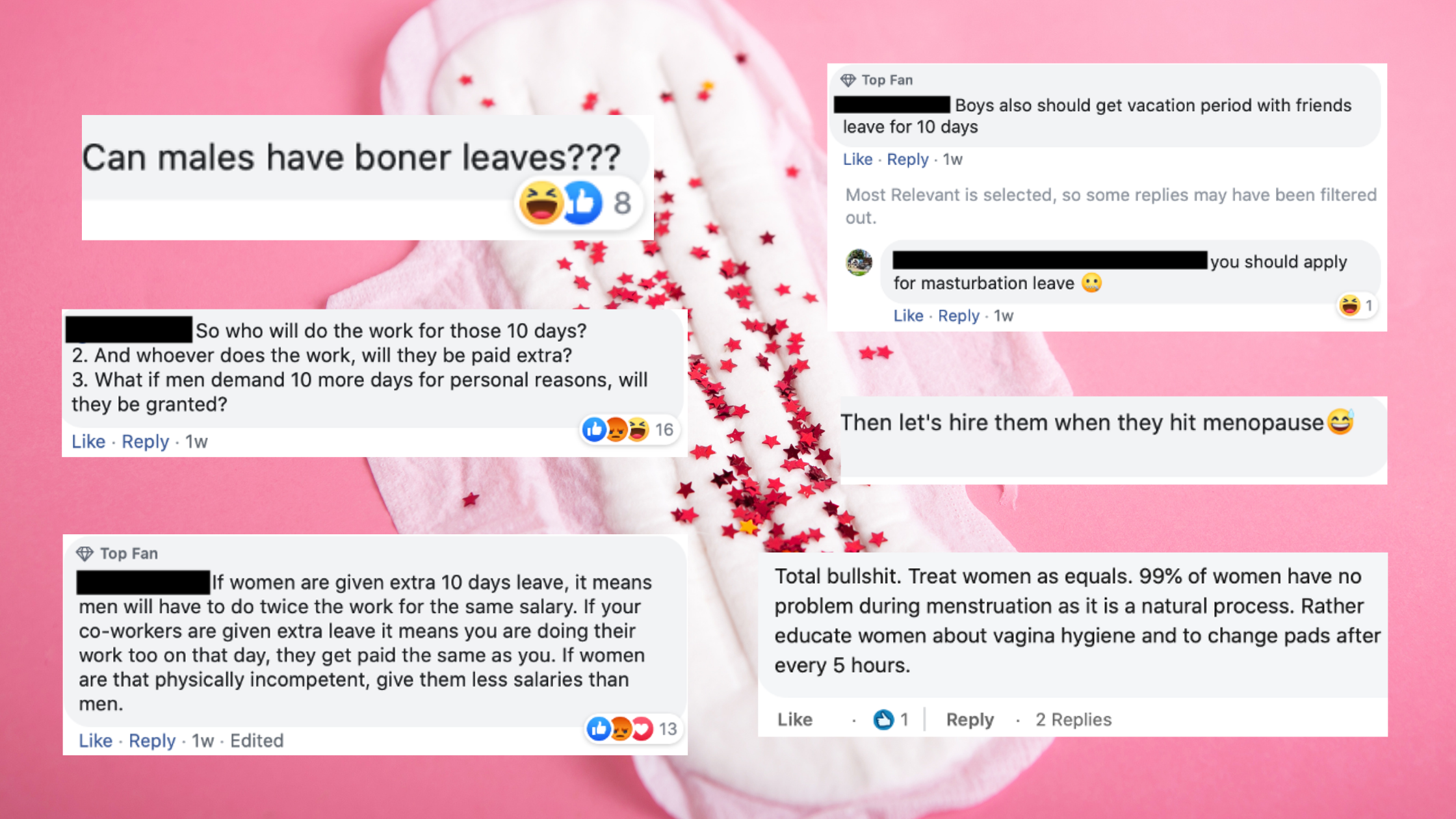What Is Menstrual Leave and Why Is It So Bloody Important?
You may have heard the words ‘menstrual leave’ circulating the internet the last few weeks but does anyone actually know what the bloody hell it is?
When Zomato, a global food-delivery company based in India, announced they would be giving their staff paid leave for periods I did what every young, twenty-something would do; I dived into the comments, and boy, were there a lot.
Leaving social media even more confused (and very angry), I wondered if there were any Australian companies who actually had a menstrual leave policy in place.
Enter the Victorian Women’s Trust, an independent organisation advocating for true gender equality and has offered paid days off for painful periods for the last three years. I spoke to executive director, the amazing Mary Crooks, about everything from free tampons in the workplace, period poverty, to those nasty little comments (seriously? “boner leave”?).
ELLIE BUSBY: For those who don’t know, what exactly is menstrual leave?
MARY CROOKS: Our menstrual leave policy has three components but first of all it’s based on the fact menstruation and menstrual pain is not a disease, so it’s not an illness. Our question is why should a woman have to ring up and maybe lie she’s sick when in fact she’s having a heavy bleed and it’s causing her discomfort? We say it’s not an illness it’s just an absolutely essential part of a woman's reproductive system and if she’s at work, it should be considered something to be looked after.
[The first component] is if you are at work in an office and you are experiencing menstrual discomfort, then you can get up and move freely. You can change your position. You could go sit on a couch, lie down with your laptop or even have a bit of a rest. You can keep working but take some action that makes it more comfortable for you. The second component is if you do wake up with some menstrual pain and discomfort and you feel as though you can work but work remotely, stay in your jim jams and work at home, then you have every right to do so. And the third is if the discomfort is too great for you to work on that particular day, then you can have one day of menstrual leave and you can have up to 12 of those days a year.
EB: What was the reaction like from other people when they heard about your menstrual leave policy?
MC: When we first released it there were some, I mean, we got a really polarized response from those sort of ‘suck it up, princess,’ ‘oh god, what’s next?’, ‘how precious’, ‘get serious’ to those who are saying ‘thank GOD someone’s come along and started to articulate this’.
EB: When Zomato announced their menstrual leave policy, there were a lot of comments from both men and women saying they believe people who menstruate will exploit this policy and the men in the company will have to pick up their slack. What would you say to that?
MC: I think in the three years or so we've had menstrual leave, I think [the total amount of people] applying for menstrual leave would scarcely be in the double figures. So my guess is that we might, over three years, have seen 15 days used across the staff. […] Even then, of most of the young women who menstruate, it's only a couple who tend to apply for menstrual leave. So my point about that is it's not a majorly used function, so the sky hasn't fallen in.
EB: What are the key benefits of menstrual leave? Does it boost morale? Does it impact work effectiveness or efficiency?
MC: The benefits I can say, overwhelmingly, outweigh the costs. For a start, it has changed the culture in our office in that menstruation is no secret. It’s not something to be ashamed of or something to hide. There’s more openness and there is more of an inclination to be empathic and supportive. It has also led to us having free menstrual products in the staff room. Staff will share tips about what menstrual cup is better than the other, which is something I wish I would have known more about when I was still menstruating.
When someone does have menstrual leave, no one is getting down on the other about it, it’s just accepted. There has been no abuse in my view and I think the staff really appreciate an organisation that, for one, sees it as biological integrity [and two] comes from a place of caring for its staff. I think we get paid back in loyalty, which is a win-win for us.
EB: What do you hope other Australian employers will learn from your menstrual leave policy?
MC: It’s in a workplace’s interest, women’s interest and men’s interest to have menstrual leave as part of their package.
EB: Lastly, what are your thoughts on period poverty and the need to support women in the workplace, whether it's with free access to sanitary products or menstrual leave?
MC: To have good quality and environmentally sustainable menstrual products, for a start, available to any woman, anywhere, is just so important. To me, to have menstrual products on standby in your organisation should just be a given. And if there’s a way in which women, in say developed countries, can provide material support to other women in less developed countries then we should be trying to do that as well.
Want to find out more about how you can create a positive new culture of menstrual wellbeing? Check out the amazing book ‘About Bloody Time: The Menstrual Revolution We Have To Have’ https://www.vwt.org.au/projects/about-bloody-time/
Written by Ellie Busby


